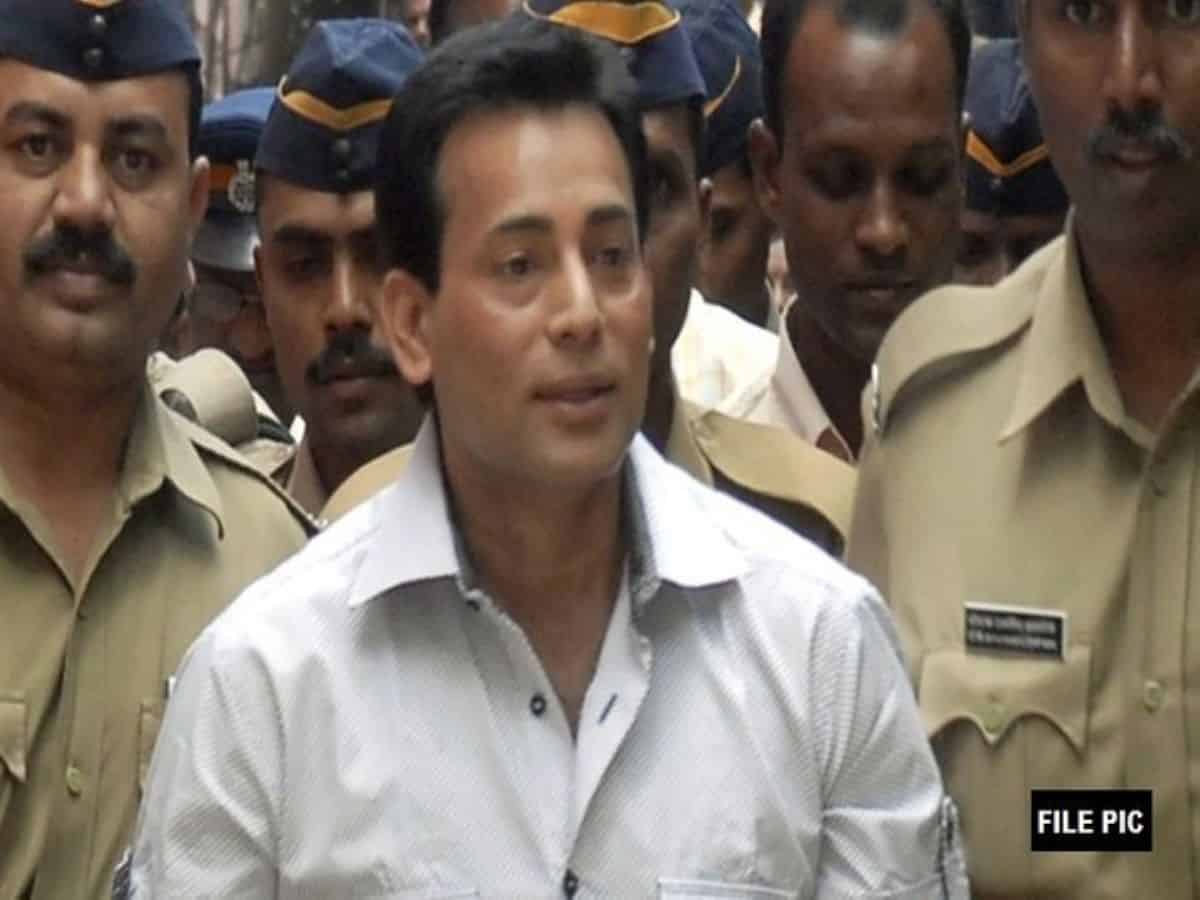
New Delhi: Union Home Secretary Ajay Kumar Bhalla has told the Supreme Court that the Indian government is bound by its assurance given to the Portugal government during the extradition of gangster Abu Salem, a convict in the 1993 Mumbai serial blasts case, but the question of honouring it will arise only when the period of 25 years is to expire.
On March 8, the Supreme Court asked the Union Home Secretary to file an affidavit, on whether the Centre is committed to adhere to the assurance given by the then Deputy Prime Minister L.K. Advani to Portuguese authorities of not incarcerating gangster Abu Salem for more than 25 years while seeking his extradition.
Bhalla filed a written response to the court’s query on Abu Salem’s plea questioning life imprisonment imposed on him by the TADA court on September 7, 2017 in the serial blasts case.
In an affidavit, he said: “The government of India gave an assurance vide letter dated December 17, 2002, to the government of Portugal. This assurance is an executive assurance given by one country to other in the exercise of their executive functions.”
“The period of 25 years which is mentioned in the assurance will be abided by the Union of India at an appropriate time subject to the remedies which may be available. The question of the Union of India honouring its assurance dated December 17, 2002, will arise only when the period of 25 years is to expire. This date is November 10, 2030.”
The affidavit said before this date, the convict cannot raise any arguments based on the assurance, therefore the contention of the petitioner about non-compliance of assurance is premature and based on hypothetical surmises and can never be raised in present proceedings.
“The government of India will abide by the said assurance…. subject to the rights which may be available at that stage. The attempt of convict-appellant to club that assurance with merits of the present case is legally untenable as the appeals need to be decided in accordance with Section 19 of the TADA read with other provisions governing criminal procedure,” it said.
The Home Secretary added that having carefully examined the matter and the ramifications which the stand of Union of India will have, it is the respectful submission of the Central government that the top court may decide the appeal on merits.
The Home Secretary pointed out that with regard to the set off period of sentence, the prosecuting agency has already filed a reply and made submission before the top court on that issue.
“Therefore, there is no question of the convict-appellant arguing anything at this stage based upon the said assurance while arguing the present appeal on merits of the case which can be argued only based upon the investigation papers, evidence collected (both oral and documentary) and the findings of the designated court,” said the affidavit.
On April 12, the top court asked the Central government to file its response by April 18 and scheduled the matter for further hearing on April 21.
Asking the Centre to make its stand clear, the top court had said that not abiding by the assurance made to the Portugal authorities, could have wider ramifications and it may create problems while seeking extradition of fugitives from other countries.
The CBI, in its affidavit, has told the top court that an Indian court is not bound by the assurance given in 2002 by the then Deputy Prime Minister to Portugal that gangster would not be imprisoned beyond 25 years after his extradition to India.
The top court said it is not happy with the CBI’s reply in the matter and sought a response from the Home Secretary.
Advocate Rishi Malhotra, representing Abu Salem, had argued that as per the principle of reciprocity in Portugal, the courts cannot award a sentence for more than 25 years. He contended that based on the principle of reciprocity, India had given a solemn sovereign assurance to the Portugal courts that in case Abu Salem is permitted to be extradited back to India, he will not be given punishment for more than 25 years.

